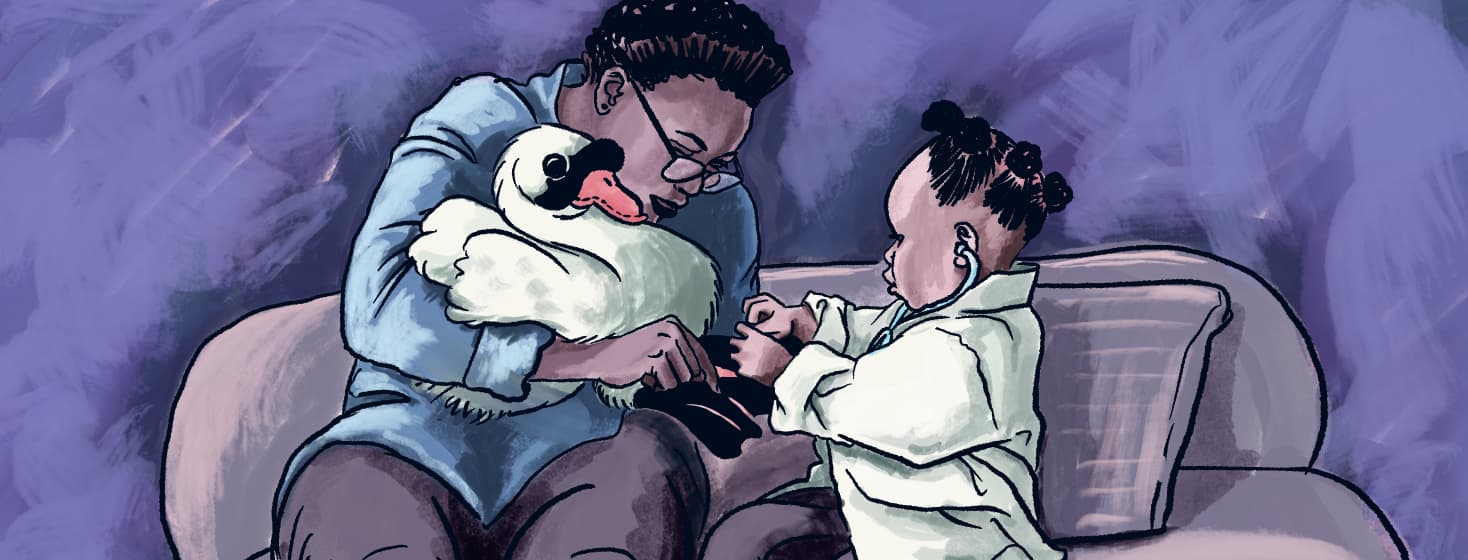What is a SWAN?
When your doctor suspects you have an illness, they may give you one or more medical tests to help them make a diagnosis. But what happens when the results fail to offer a clear picture?
SWAN is short for “syndrome without a name.” It describes rare genetic conditions in children that doctors have trouble diagnosing. The child may show symptoms of a particular illness, but the results of genetic testing are unclear. A child with a SWAN may one day receive a precise diagnosis. But many continue to live in limbo.1,2
Why do children go undiagnosed?
Doctors may not be able to diagnose a child with a specific illness for several reasons:1,2
- The condition is so rare that a doctor has never seen it before and does not know to test for it.
- Symptoms in one child may look different from others with the same illness.
- Testing reveals changes to a child’s genes, but doctors cannot pinpoint what is causing them.
- Some symptoms may not appear until a child is older.
- The child may have a previously undiscovered condition.
Life without a diagnosis
Life with a SWAN can be difficult for you and your child. You do not know why they are having symptoms, if they will get worse, or their chances of recovery. You may need to see multiple doctors and go to numerous appointments. This can affect school, work, finances, and other aspects of your life.2
Having a definitive diagnosis can give you access to services like therapy and caregiving. But for families living with a SWAN, it may be impossible to access the same assistance. Fortunately, some groups offer support and resources for families affected by a SWAN:3-6
- SWAN UK offers:
- An online forum for parents
- Virtual coffee meet-ups
- Family-friendly events
- Information for parents
- Information for experts in rare disorders
- SWAN Australia provides a social hub for families and information to access health and support services. The group also advocates on behalf of children with SWANs within the broader research and healthcare communities.
- The National Organization for Rare Disorders (NORD) is an U.S. advocacy group for people living with rare disorders and the groups that serve them. An essential part of NORD’s mission is supporting families coping with rare conditions. They have also launched a platform that allows people with rare disorders and researchers to connect and learn from each other.
- The Undiagnosed Diseases Network from the U.S. National Institutes of Health is a study that brings together experts working to advance research in rare and undiagnosed conditions. Families can apply to take part in the study.
Although your child does not have a diagnosis for their condition right now, that could change in the future. Continue to see your doctor regularly so they can monitor changes in your child’s health and development. These changes may reveal new information to help eventually make a diagnosis. And even without a specific diagnosis, your doctor can still offer treatments to ease your child’s symptoms.1

Join the conversation